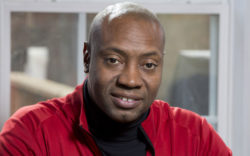University of Georgia student athletes are never more than one tweet or Facebook post away from facing disciplinary action or losing their eligibility.
Each sport within the UGA Athletics Association has policies for regulating athletes’ social media conduct. Some teams require that their players’ social networking sites be private, with the stipulation that the sports staff “be able to access your site.” And some sports, like basketball, have polices that go as far as governing students’ intimate relationships: “Stay out of gray areas, orgies and gang bangs are inappropriate.” Most of the policies include an ambiguous statement that content and pictures posted to social media “must be appropriate.” What is appropriate is determined by the administration or coaching staff.

A certain level of notoriety comes with being a prospective football recruit for UGA. And public scrutiny for wayward comments is intensified due to the constant eyes of avid Bulldog fans who follow and read every social media post by athletes and recruits.
According to the UGA Athletic Association’s social media policy, “UGA Football recommends that student-athletes not participate in social networking sites such as Facebook, Myspace and Twitter.” It goes on to say that if the student does participate in social media, “he may not post information regarding the team or any other material that could be detrimental to the team or UGA Athletic Department.” Anyone breaking the rules by posting something unfavorable can be subject to disciplinary action.
Coach Mark Richt said during a press conference early this month that the content of one player’s social media account actually cost him his scholarship offer.
“[The player] had some stuff on social media we didn’t like. We keep an eye on that. We told him, we told his coach, ‘We don’t condone that,’ and he was a guy who was already committed to Georgia,” Richt said. “And then he persisted, actually changed his little handle [the name he uses online] and continued to do that kind of thing, thinking we wouldn’t find out, and we found out about it, and we cut him. We rescinded that offer, because he’s not going to do what we say to do at that point, then what’s going to make us feel like he’s going to do it when he gets here? There’s definitely a vetting process that we’re very serious about.”
Richt wouldn’t publicly mention the name of the player who was dropped, but when asked about what type of social media activity was deemed inappropriate enough to rescind a scholarship offer, he said, “I don’t want to get into specifics, but anything that might offend my wife. That’s a pretty good start right there.”
The Atlanta Journal-Constitution narrowed down the possibilities to six players who de-committed in 2014: Nick Glass, a defensive back from Peachtree Ridge High School; Stanley Williams, a running back from George Walton Academy; Demarre Kitt, a wide receiver from Sandy Creek; Dontavius Russell, a defensive tackle from Carrollton; Krenwick Sanders, a wide receiver from Wayne County; and Kendall Gant, a defensive back from Lakeland, FL.
This season, the football team has banned all freshman players from any social media interaction. According to Claude Felton, senior associate athletic director for sports communications, the freshmen were “asked” not to participate in social media this season.
In a recent article for the University of Maryland’s Law School Academic Journal of Business and Technology, student press advocate Frank LoMonte writes that such restrictions could be deemed—and probably are—unconstitutional. LoMonte, executive director of the Student Press Law Center, a Washington, D.C.-based advocacy group for student press and First Amendment rights, argues in his article, aptly named “Fouling the First Amendment: Why Colleges Can’t, and Shouldn’t, Control Student Athletes’ Speech on Social Media,” that several precedents set by Supreme Court cases would likely favor any student athlete willing to challenge the status quo.
However, some players, like UGA wide receiver Chris Conley, do not feel that any of the policies infringe on their First Amendment rights. “If you have a particular opinion on anything—yeah, you can post that. I mean, you’re a student, you’re in college, you’re supposed to be free thinking. There’s no problem with that,” Conley says. “Personal attacks, language, being disrespectful to women—those are things we never do, places that we don’t go.”
He adds that some players don’t realize the number of eyes watching their social media accounts. “Sometimes you want to be cognizant of who’s reading those tweets, and you don’t want to offend anybody,” he said. The key is being “respectful,” Conley says.
“People are looking at everything that you do, and you’re representing a program, you’re representing more than yourself. In doing that, when you sign on to play at Georgia, you know you represent the football team, you represent the university and you represent your family,” he told Flagpole. “When you do that, there are certain ways you are supposed to approach public speaking.”
UGA linebacker Davin Bellamy used his Twitter account in a positive way when he was charged with driving under the influence during the off-season—by embracing his mistake and apologizing to his fans. “Would like to apologize to #dawgnation for my immaturity. I have embarrassed myself, my family, & my brothers. I will gain your trust back,” he tweeted.
Some senior players—like UGA quarterback Hutson Mason—choose not to deal with social media at all during the football season due to the constant barrage of tweets from fans.
“I’m off social media now, really just focusing on how I can get better and how I can play good enough to help this team win,” Mason says. He says he misses it when he has free time or while using the toilet. “No one uses a newspaper anymore; that’s what Twitter’s for,” he jokes. “When I’m busy, I don’t miss it, but when I’m sitting at home just laying in the bed, I’m like ‘Man, I got to get back on there.’”
Like what you just read? Support Flagpole by making a donation today. Every dollar you give helps fund our ongoing mission to provide Athens with quality, independent journalism.










